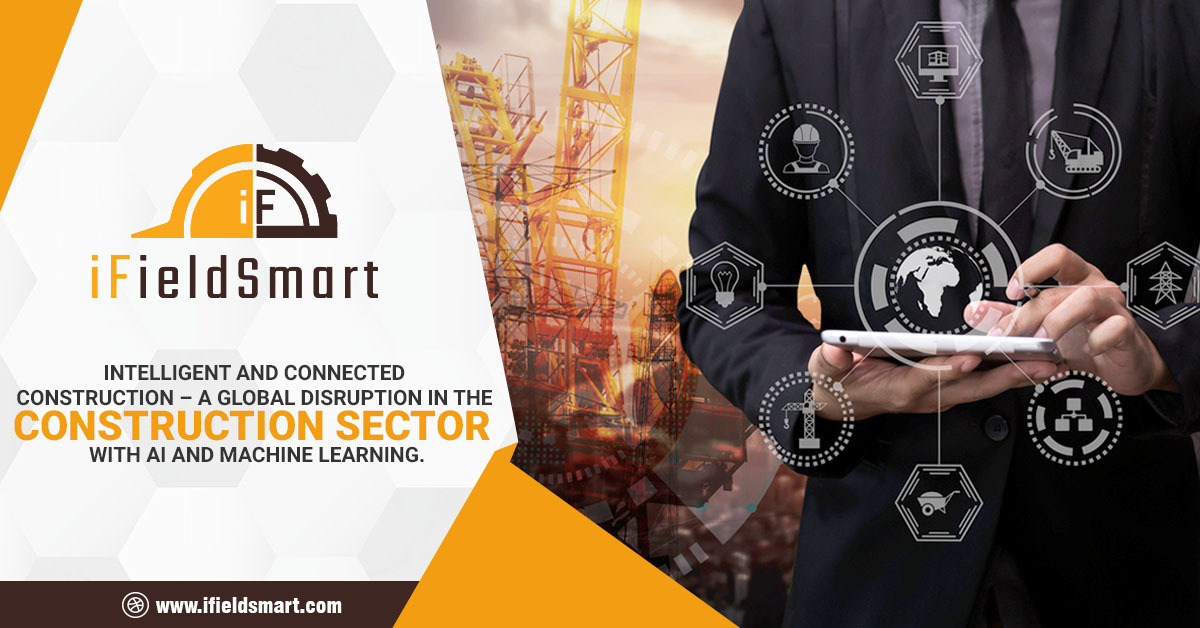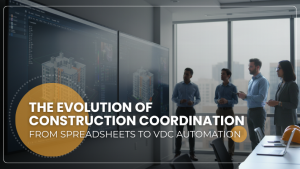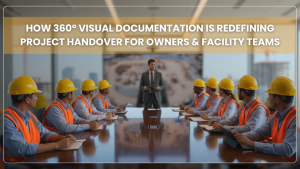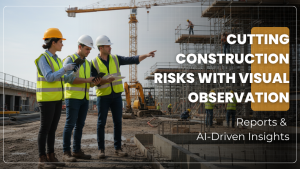Reading Time: 7 minutes
The construction sector is at the fringe of complete digitalization as it continues to provide a myriad of opportunities to disrupt traditional construction processes and tools. AI and Machine Learning are expected to strengthen construction efficiency throughout the entire project lifecycle viz. planning, design, equipment manufacturing, construction, and facilities management. Key players can identify and resolve various challenges that include design errors, schedule and cost overruns, onsite safety issues, poor project management, and low ROI. Construction project management can play a crucial role in improving construction management in the early stages. Risks can be mitigated by linking RFI’s, submittals, and change orders in the preconstruction phase itself. A connected data ecosystem integrated with AI and machine learning has the potential to unlock the best solutions for construction management.
Preconstruction and construction specialists will increasingly adopt and adapt to AI and Machine learning tools for planning, design improvements, job site photo documentation, progress tracking, and more. BIM models have altered the way buildings, facilities, and infrastructure is designed and built. The use of data or information has made it possible for AI and Machine Learning to find greater emphasis in the construction sector. AI comes with significant benefits for BIM and important project players along every stage of the building lifecycle. A snapshot of those benefits is listed in the following infographic.
Based on a report, more than 10% of every construction dollar goes into rework, whilst more than 35% of rework is initiated through errors and delayed changes.
Work Smarter, Not Harder
iFieldSmart empowers your team with AI-driven efficiency to simplify scheduling, boost collaboration, and keep projects on track.
Schedule a MeetingPreconstruction specialists
- Architects can build and improvise on generative design
- Planners can streamline the planning process with reduced efforts
- Predict and mitigate risks that may impact project timelines
Construction specialists
- Monitor construction quality and progress in real-time with 360 photo documentation
- Integrate automated equipment for job-site activities and onsite safety
- Identify high-risk factors and turn them into actionable insights
- Measure sub-contractor performance based on real-time data
Building material fabricators
- Fabricate building components for improved onsite installation and quality
- Optimize production time for quick project turnaround
Building equipment dealers
- Look for optimized checkpoints to improve inventory management
- Improve project schedules with location-based AI & autonomous equipment
Facilities Managers
- Deploy predictive maintenance algorithms with machine learning
- Control building systems through AI-based devices and software
- Improve decision making for renovations, repair, or maintenance drives
Key players will increasingly leverage AI and Machine Learning to build new business models and “go-to” game plans across the AEC sector. The construction sector is well-placed and paced to leverage the benefits of Machine Learning and Artificial Intelligence (AI).
Best practices to adopt Machine Learning for construction.
Build digital workflows and construction documentation – Collect accurate project data from inspections for AI and Machine Learning to work on for significant improvements
Begin with accurate data – Inaccurate or sub-standard inputs can generate an inaccurate output. Organizing your digital resources like models, drawings, challenges, or any other data needs to be sorted-out to leverage an accurate output.
Select an appropriate platform or service – Look for platforms or services that exhibit flexible software interoperability and manage all your data in a single location for efficient project management.
“According to McKinsey, key players across the construction project lifecycle include contractors, operators, owners, and service providers, can no longer perceive AI as technology only relevant to other sectors or industries.”
Complete projects on time and budget with precise planning & design.
Getting thought, planning, and design into the building lifecycle is key to delivering construction projects on time, within costs, and adhering to quality. Architects, designers, and engineers inherently spend a serious amount of time building design prototypes on various parameters and architectural stats. In reality, large and complex construction projects fail due to inadequate planning and poor design.
This is where AI and Machine Learning enables exceptional generative design. Generative design based on historical data helps create a myriad of design prototypes or models. These capabilities can be leveraged by designers, engineers, and architects by simply applying parameters like spatial data, building material, cost variations, required performance, etc. Powered by artificial intelligence and deep learning, key teams and stakeholders can explore a range of options through various iterations. Each prototype or iteration becomes a strong design choice for new construction projects.
Designers and engineers can cut-down on repetitive designing by selecting desired designs or models based on given parameters. Beyond time benefits, AI and Machine Learning systems can help enhance new and existing designs through cutting-edge creativity. Studies show that generative design has been adopted by many architects, designers, and engineers as a means to leverage potential capabilities. AI simplifies work to a great extent wherein onsite clashes, rework, reassessments, and various challenges can be completely mitigated to save on time and cost.
Augment job site dynamics, planning, and logistics to strengthen project execution.
The most important aspect of an AEC project is onsite construction. Project stakeholders face a myriad of challenges that include onsite safety, logistics, material waste, etc. Looking for materials in the right quantity and cost is a serious challenge that can delay construction if not planned accurately. More than 80 % of the projects fail significantly as they are over-budget, and deviate from predefined planning.
AI and deep learning algorithms can help key players reduce downtimes, make material search easy, improve logistics, and enhance job site security. The use of AI-based systems keeps every stakeholder informed to increase project productivity and augment onsite construction. AI-based software can help identify and resolve potential onsite clashes and changes in construction using Digital Twins through BIM models and actual construction.
AI-based software helps document job sites in 360 to manage RFI’s, inspect and monitor job sites in 360, leverage data-driven insights, recognize onsite elements, etc. Machine and deep learning can project 99% accuracy to decipher various onsite elements with accuracy and reliability. A complete site understanding with machine learning approximations helps general contractors and owners assess the site in real-time to forecast progress, cut costs, enhance quality, and reduce project delays.
AI combined with various IoT devices, sensors, cameras, etc. makes job sites safer. Onsite accidents can be major drivers of cost overruns and project delays. Image recognition software can help onsite personnel work better and safer through quick identification of tools. With Artificial Intelligence deployed, productivity and tools can be enhanced by reducing the amount of time spent documenting and monitoring the job site.
Machine learning integrated human potential projects more than 35% increase in workforce productivity as the equipment is used more effectively and efficiently.
Find quick answers to Facilities Management with Artificial Intelligence and Machine Learning.
Facilities Managers can optimize post-construction processes and activities using AI-based platforms. The amount of data collected at the end of the construction process is vast for machine learning to aid stakeholders to make informed calls. Repairs and maintenance can take a serious amount of time and incur heavy costs. AI used in optimizing energy systems can help save resources by activating or deactivating systems to reduce energy consumption.
AI connected to a global database of building component manufacturers can drive predictive maintenance that reduces maintenance costs. Efficient facilities management can be leveraged by managers or owners to identify defective building components or equipment and order a new alternative.
Conclusion.
Along the road to AI and machine learning, BIM will serve as a key tool to push the limits of design, construction, FM & operations. In years to come, deep learning algorithms will continue to deliver cost and time savings, improve overall efficiencies, and more to the AEC industry. The construction sector is ready for a tangible digital revolution through Artificial Intelligence and Machine Learning as the next frontier in modern building to address industry challenges.
Visit Us: lens360.ifieldsmart.com








